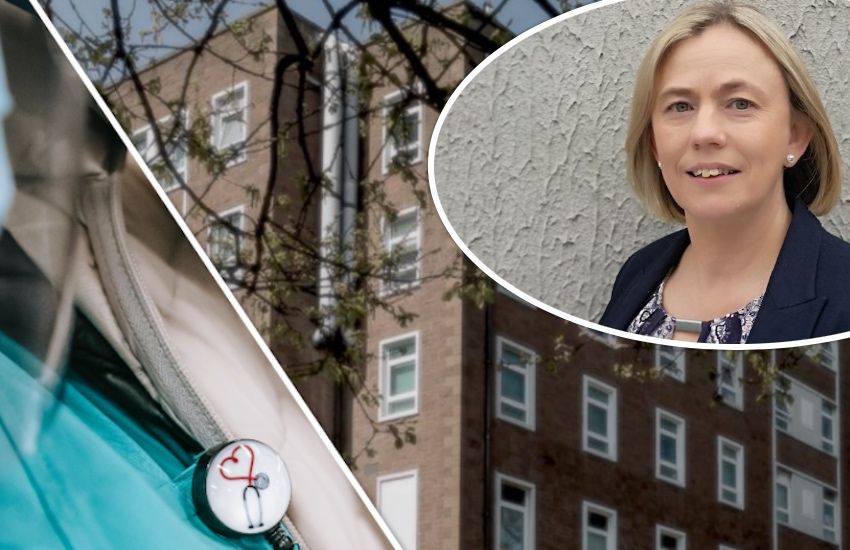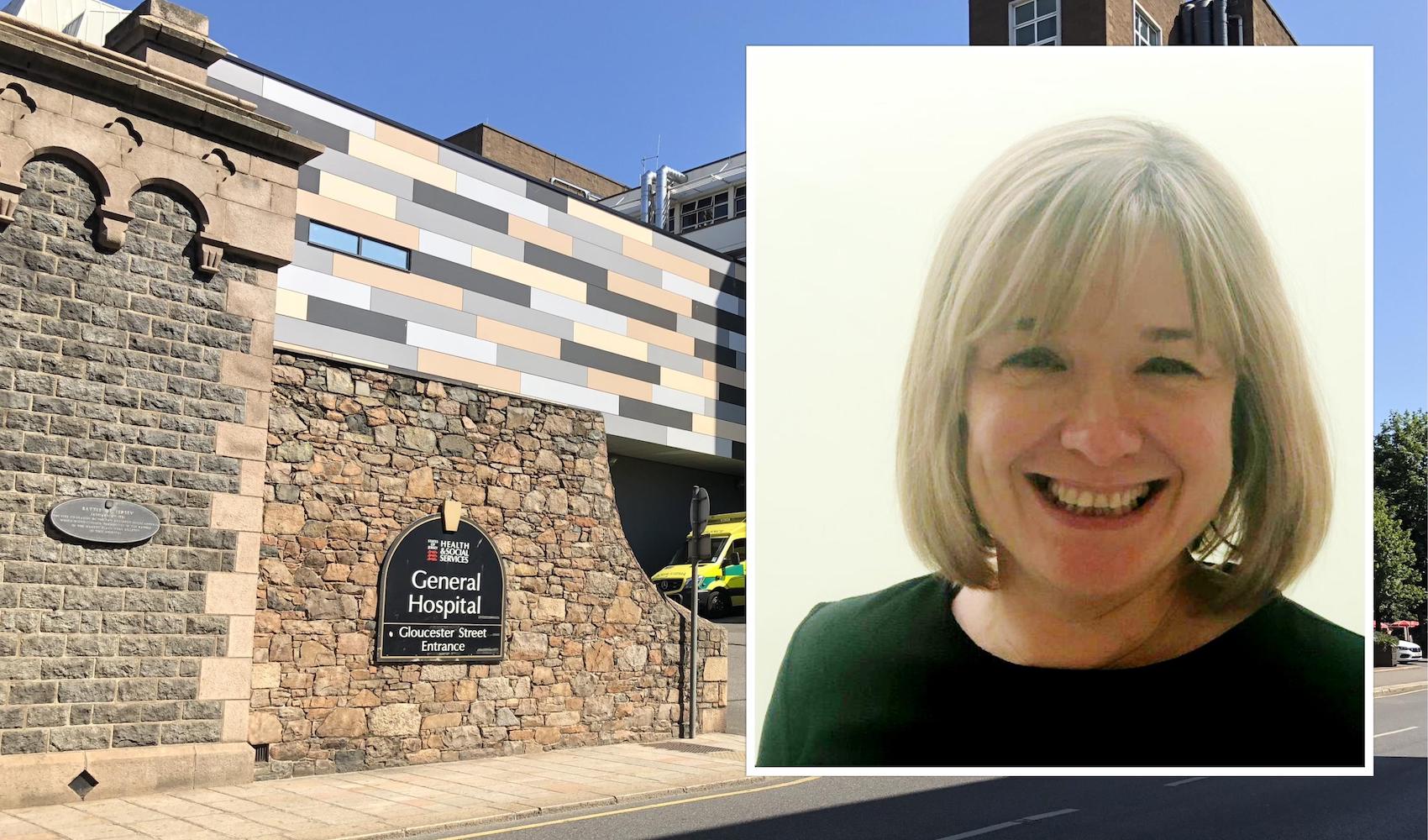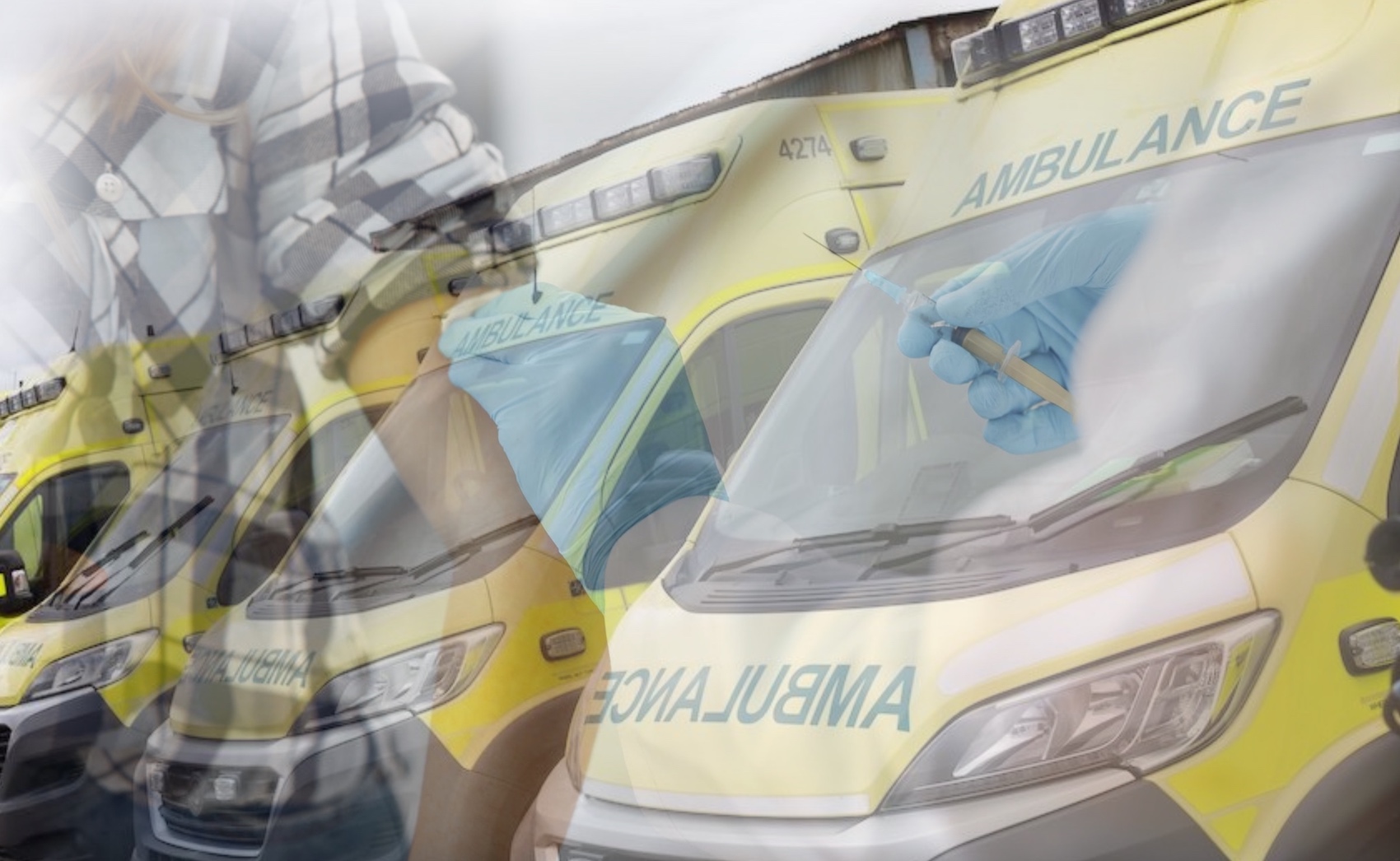


Jersey's government watchdog has found that current arrangement are failing to hold Health’s Director General and senior managers properly to account.
While Comptroller and Auditor General Lynn Pamment noted the governance of Jersey’s health service had “visibly moved forward” since a review by her predecessor in 2018, she found that just six recommendations had been acted on.
12 were partly fulfilled, while she believed four had not been implemented at all, including being more open with the public about service complaints, and the lessons learned from them.
In a new report published this morning, Ms Pamment welcomed the creation of the HCS Board, which holds its meetings in public, and the release of its June 2021 performance report following pressure by the media.

Pictured: Health and Community Services Director General, Caroline Landon.
However, there were concerns that the board wasn’t rigorous enough in its scrutiny of the Health Department’s performance and processes.
Ms Pamment noted that, over time, the Board had “little supplementary written performance information outside of performance presentations.”
The little written information that is provided “falls short of the level I would expect for the HCS Board to fulfill its functions effectively”, she said.
Illustrating the lack of written data being scrutinized at the meetings, Ms Pamment observed how over 50% of a typical meeting ‘pack’ was made up of the agenda and minutes of previous meetings.
Despite 12 meetings having been held between July 2019 and April 2021, Ms Pamment found the Director General had only provided a written report once, while management had only done so on three occasions.
She also found that the board had not been keeping an eye on the work of Public Health, which has taken a lead during the pandemic.
“…the Director General for Strategic Policy, Performance and Planning (SPPP), the Medical Officer of Health nor the recently appointed Director of Public Health have ever been asked to provide a report to the HCS Board.”
Scrutinising how well Health’s Director General and the department’s senior executives are doing their jobs both on a strategic and day-to-day level was supposed to be one of the HCS Board’s key responsibilities when it was set up.

Pictured: in the first quarter of this year, nearly one in three complaints still weren’t receiving a response within 28 days, the current target.
But Ms Pamment said this wasn’t happening.
“From the evidence I have reviewed however, neither the assurance committees nor the HCS Board are currently performing the role of holding the HCS Director General and Senior HCS Executives to account for performance,” she said.
At a lower level, she noted that Assistant Ministers were supposed to chair sub-groups sitting underneath the Board – but that their attendance at such meetings had been “limited”, ranging from 33% to 42% of meetings in the period from August 2020 to May 2021.
Hinting at a ‘marking your own homework’ issue, the Vice Chairs of each sub-group were the relevant departmental leaders – something Ms Pamment said was not “recommended practice”.
Instead, she said “independent lay person with an appropriate background” should chair each committee.
Care groups were also found to be struggling to monitor their activities due to a “shortage of business support, including informatics support to understand their information better.”
“Quality and safety programmes require excellent clinical data and clinicians are more likely to improve the quality of the data they capture if they are supported in a culture of using the data for clinical improvement,” Ms Pamment observed.
On the whole, Ms Pamment said the service should share more information about how it was performing against its targets with the public.
This, she said, would move Jersey towards “best practice seen in other jurisdictions”.
She also said the Government should aim to extend such reporting to all health and social care services, like GPs, dentists, pharmacists, care homes, and Hospice.
The General Hospital as a whole, GPs, dentists and pharmacists will not be fully inspected by the Jersey Care Comission – the statutory quality regulator – until 2025, Ms Pamment found. Next in line for inspection are children’s services and mental health.
Ms Pamment also recommended that the department be more open about the complaints it receives, and how they are handled, with the public.
In 2018, The 2018 Report noted that the target for responding to a complaint was 25 days. However, in July 2017, compliance with this target was only 39% for complaints relating to the General Hospital and 25% for complaints relating to community services.
Ms Pamment found that there had been some improvement in response times, but that in the first quarter of this year, nearly one in three complaints still weren’t receiving a response within 28 days, the current target.
She noted that a review for a potential future Patient Advice and Liaison Service (PALS) to provide on-the-spot help to patients and negotiate swift resolutions to problems, and capture views of “disadvantaged groups” and “seldom heard voices”, was “currently ongoing”.
One of her key findings was that many different elements of the health service had different leaders holding them to account - such as Justice and Home Affairs looking after the Ambulance Service, SPPP handling Public Health, and Customer and Local Services playing a key role in complaints handling and medical benefit payments - which she said appeared overly complex for a small jurisdiction.

Pictured: Ms Pamment drew attention to fragmented leadership across the health service.
She concluded that a more joined-up governance approach needed to be found.
“The system-wide governance arrangements, encompassing this wider range of providers, will become more important as Jersey moves to a ‘community based (out of hospital), person centred, integrated health and social care model’ as intended by the implementation of the Jersey Care Model. Future governance arrangements will need to evolve to recognise this,” Ms Pamment said.
Overall, enhancing governance within the health service was found to be strongly linked to culture, according to Ms Pamment, and senior management ought to act as role models.
“As noted in both the 2018 Report and above, good governance depends not only on effective structures and accountabilities but also on a common understanding of and commitment to the values of good governance, driven from the top.
“In health and social care good governance is crucially dependent on a culture where speaking up and challenge by colleagues is promoted, respected and welcomed.”
Comments
Comments on this story express the views of the commentator only, not Bailiwick Publishing. We are unable to guarantee the accuracy of any of those comments.